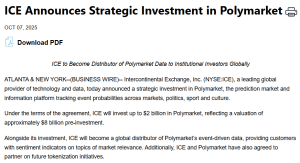Aevo unveils platform offering 1000x leverage on select stocks like MSTR and CRCL
Aevo, a decentralized derivatives exchange built on a custom Ethereum layer 2, has introduced “Aevo Degen,” a new product offering up to 1000x leverage on tokenized stocks.
The product, which went live on July 8, currently supports Coinbase (COIN), Robinhood (HOOD), MicroStrategy (MSTR), and Circle (CRCL), with more stocks expected to be added. Trades are only available during U.S. stock market hours, and all positions are automatically closed at the end of each trading day.
With a small amount of capital, users can place large directional bets thanks to the product’s design for short-term, high-risk trading. The 1000x leverage enables a trader to control a $100,000 position using just $100. However, on that scale, a single 0.1% move in the wrong direction can wipe out the entire position.
Aevo (AEVO) uses an off-chain order book for fast execution, while trade settlement takes place on-chain using its layer 2 rollup. This setup keeps trading quick and costs low while maintaining transparency and user custody.
Aevo’s platform does not charge standard trading fees for Aevo Degen. Instead, traders only pay if they make a profit, in which case a portion of their gains goes to the platform. This fee model is designed to support active traders and speculators, who might be sensitive to frequent trading costs.
The platform uses tokenized stock derivatives instead of actual shares. These tokens don’t represent direct ownership, but they use oracles to track actual stock prices. This approach helps keep the system flexible, allowing users to trade stocks within the crypto ecosystem without needing a traditional brokerage.
The launch of Aevo Degen adds to a growing list of efforts to bring traditional financial products into decentralized platforms. It also raises questions around risk and regulation, especially with such high leverage involved.
While Aevo says it has built a strong technical infrastructure, users must still manage risk carefully. Large swings in price can result in fast and heavy losses.
You May Also Like

Bitcoin Breaks Below $100K But Stablecoin Inflows Hint at Quiet Re-Risking

Polymarket To Provide UFC, Zuffa Boxing With Real-Time Fan Predictions
